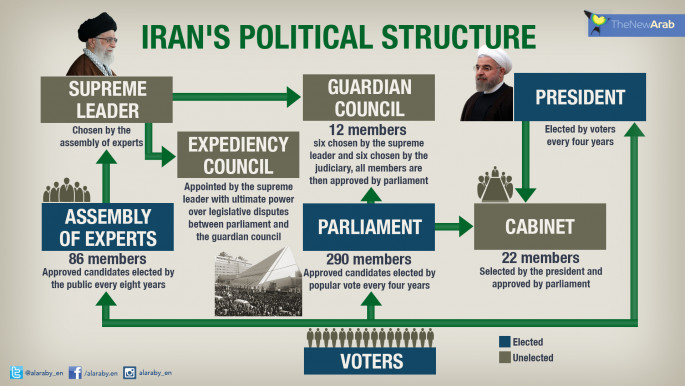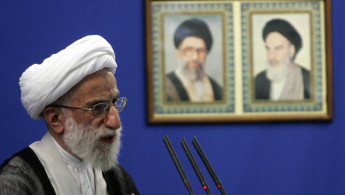Iran hardliner appointment temporarily closes door to reform
An elderly ultraconservative cleric has been appointed to chair Iran's Assembly of Experts, the body which oversees the work of the country's supreme leader, and which will eventually elect his successor.
The decision to elect 90-year-old Ayatollah Ahmad Jannati marks a reaffirmation of the deeply conservative nature of Iran's political and religious establishment after the landslide victory of reformist and moderate candidates during parliamentary elections this year.
Jannati was one of the few hardliners elected then, and was voted chairman of the 88-member assembly with 51 votes - with no moderates competing for the leadership of the country's most powerful clique.
He has issued strong messages of support for Lebanese Shia militant group Hizballah, and has frequently attacked the United States and its regional partners.
His election is widely viewed as a way for ultra-conservatives to consolidate their power amid rising popular support for the moderate and reformist camp, led by President Hassan Rouhani.
Jannati's reformist son, Ali Jannati, has also held important positions in government, and now holds the post of minister of culture and Islamic guidance.
But despite being perceived as significantly more moderate than his father, Jannati Jr announced that Iran would not send pilgrims to the Hajj this year, after a long-standing disagreement with host country Saudi Arabia - particularly after last year's stampede in Mecca, which left hundreds of Iranian pilgrims dead.
One potential threat to the rise of Jannati Sr came from former president Ayatollah Akbar Hashemi Rafsanjani, a moderate who had chaired the assembly until 2011 - and who topped the polls in Tehran three months ago.
But Rafsanjani did not put his name forward, with media reports suggesting he could muster no more than 20 of the assembly's votes.
Two other conservatives, Tehran prayer leader Ayatollah Ebrahim Amini, a moderate with reformist support, and former judiciary chief Mahmoud Hashemi Sharhoudi, won 21 and 13 votes respectively.
Despite the advances for reformists in February's election, the assembly remains controlled by conservatives.
Iran's supreme leader, Ayatollah Ali Khamenei, is 76 - and should he die during the assembly's eight-year term, the assembly will have the task of electing his successor.
With the assembly headed by an ultraconservative, it is widely considered that the next supreme leader will also be a conservative.
This post is viewed as the authoritative head of government and has final say on all matters of state in Iran, wielding more power and influence than any other position.
 |



